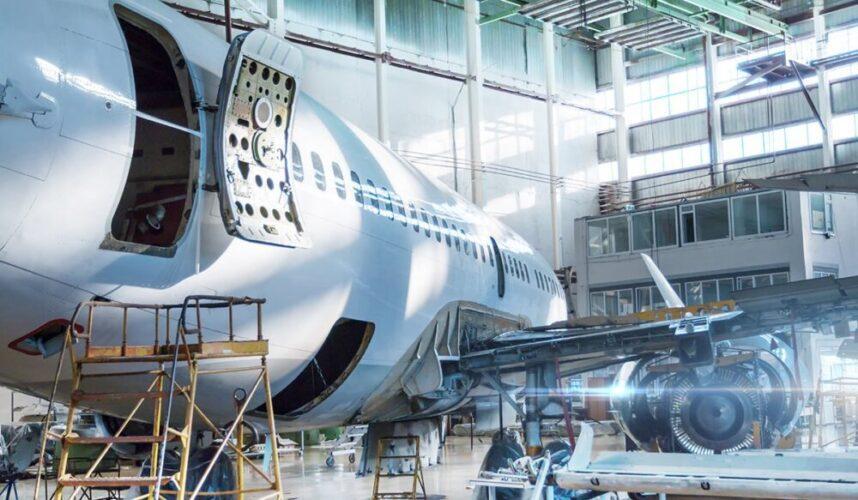Business
6 Tips For Improving Productivity In The Aerospace Industry

In the competitive landscape of the aerospace industry, optimizing productivity is paramount for companies striving to meet deadlines, reduce costs, and maintain quality standards. From manufacturing components to managing complex projects, every aspect of aerospace operations demands efficiency. Fortunately, there are actionable tips to enhance productivity in the aerospace sector. These tips range from investing in advanced technology to prioritizing employee training. It’s important to explore these tips and use them to ensure team members are on the same page.
Table of Contents
1. Embrace Lean Manufacturing Principles
Implementing lean manufacturing principles is crucial for aerospace companies seeking to eliminate waste and streamline production processes. By analyzing workflows, identifying bottlenecks, and continuously improving operations, companies can enhance productivity while maintaining high-quality standards. Lean methodologies such as 5S (Sort, Set in order, Shine, Standardize, Sustain) and Kanban systems enable efficient resource allocation and minimize downtime, ultimately driving productivity gains. Plus, adopting Just-In-Time (JIT) manufacturing practices can further reduce inventory costs and improve responsiveness to customer demand. Implementing visual management techniques, such as Andon systems, enhances transparency and quick problem-solving on the production floor.
2. Invest In Advanced Technology And Automation
Incorporating advanced technology and automation systems can revolutionize aerospace manufacturing, assembly, and testing processes. From robotic automation for repetitive tasks to advanced simulation software for design optimization, embracing cutting-edge technology enhances precision, accelerates production cycles, and reduces human error. Additionally, the integration of aerospace ERP solutions centralizes data management, facilitates real-time decision-making, and improves overall operational efficiency. Implementing Internet of Things (IoT) sensors across production facilities enables real-time monitoring of equipment performance, leading to proactive maintenance and minimizing unplanned downtime. Furthermore, adopting additive manufacturing technologies, such as 3D printing, allows for rapid prototyping and customized part production, enhancing flexibility and reducing lead times.
3. Prioritize Employee Training And Skill Development
A skilled workforce is the backbone of productivity in the aerospace industry. Providing comprehensive training programs and encouraging a culture of continuous learning empowers employees to adapt to evolving technologies and methodologies. Cross-training initiatives encourage employees to acquire versatile skill sets, enhancing flexibility within the workforce and promoting smoother workflow transitions. In addition, recognizing and rewarding employee contributions boosts motivation and commitment, driving overall productivity. Implementing mentorship programs pairs seasoned employees with newcomers, encouraging knowledge transfer and skill development through hands-on experience.
4. Implement Robust Supply Chain Management Practices
Efficient supply chain management is essential for minimizing production delays and ensuring timely delivery of components and materials in the aerospace sector. Collaborating closely with trusted suppliers, implementing just-in-time inventory systems, and leveraging predictive analytics can reduce the risk of stockouts and production disruptions. Moreover, strategically forming partnerships with suppliers boosts innovation and enables proactive risk management, enhancing the resilience of the supply chain. Implementing supplier performance metrics allows for the evaluation of reliability and quality, assists with informed decision-making, and ensures consistency in product delivery. Diversifying the supplier base also reduces dependency on single sources, mitigating the impact of unforeseen disruptions and enhancing supply chain robustness.
5. Foster A Culture Of Innovation And Continuous Improvement
Encouraging innovation and fostering a culture of continuous improvement empowers aerospace companies to stay ahead of the curve in a rapidly evolving industry landscape. Establishing cross-functional teams dedicated to brainstorming and implementing innovative solutions promotes creativity and drives process optimization. Encouraging open communication channels and soliciting feedback from employees at all levels cultivates a collaborative environment helpful for identifying and addressing productivity challenges. Creating innovation hubs within the organization provides dedicated spaces for experimentation and idea generation, creating a culture of creativity and exploration. Furthermore, incentivizing employees to submit improvement suggestions through recognition programs encourages proactive problem-solving and drives continuous enhancement across all aspects of operations.
6. Implement Agile Project Management Methodologies
Adopting agile project management methodologies is instrumental in navigating the complexity of aerospace projects with agility and efficiency. Breaking down large-scale projects into manageable tasks, setting short iteration cycles, and conducting regular progress reviews help teams adapt to changing requirements and mitigate risks proactively. By promoting collaboration, transparency, and adaptability, agile methodologies optimize resource utilization and accelerate project delivery without compromising quality. Implementing daily stand-up meetings enhances communication and keeps team members aligned on project goals and priorities, promoting quick problem-solving and decision-making. Moreover, leveraging agile frameworks such as Scrum or Kanban provides teams with clear structures and processes to streamline workflow management and enhance project visibility.
Elevating Productivity In Aerospace Operations
In the dynamic and competitive landscape of the aerospace industry, optimizing productivity is a continuous journey that demands strategic investments in technology, talent, and process optimization. By embracing lean manufacturing principles, leveraging advanced technology, prioritizing employee training, optimizing supply chain management practices, fostering innovation, and implementing agile project management methodologies, aerospace companies can enhance productivity, drive operational excellence, and maintain a competitive edge in the global market. Encouraging cross-departmental collaboration through regular knowledge-sharing sessions facilitates the exchange of best practices and promotes a culture of continuous improvement across the organization. Additionally, conducting regular performance evaluations and benchmarking against industry standards enables companies to identify areas for further enhancement and stay ahead of market trends. As the industry continues to evolve, a relentless focus on productivity will remain essential for achieving sustainable growth and success.

-

 Business3 years ago
Business3 years agoHow to Do Long-Distance Moves with Children
-

 Travel2 years ago
Travel2 years agoQuick Guide: Moving To Santa Rosa?
-

 Real Estate3 years ago
Real Estate3 years agoWhy Dubai Festival City is a Great Neighbourhood for Young Learners
-

 Business3 years ago
Business3 years agoIs Guest Posting a Good Inbound Marketing Strategy?
-

 Business1 year ago
Business1 year agoThe Ultimate Guide To Thriving In Your Printing Franchise
-

 Business1 year ago
Business1 year agoExploring The Benefits And Challenges Of Restaurant Franchising
-

 Tech3 years ago
Tech3 years agoCyber Table That Will Change Your Life
-

 Lifestyle1 year ago
Lifestyle1 year agoDallas’ Hidden Gems: 6 Must-Try Restaurants Off The Beaten Path!









Recent Comments